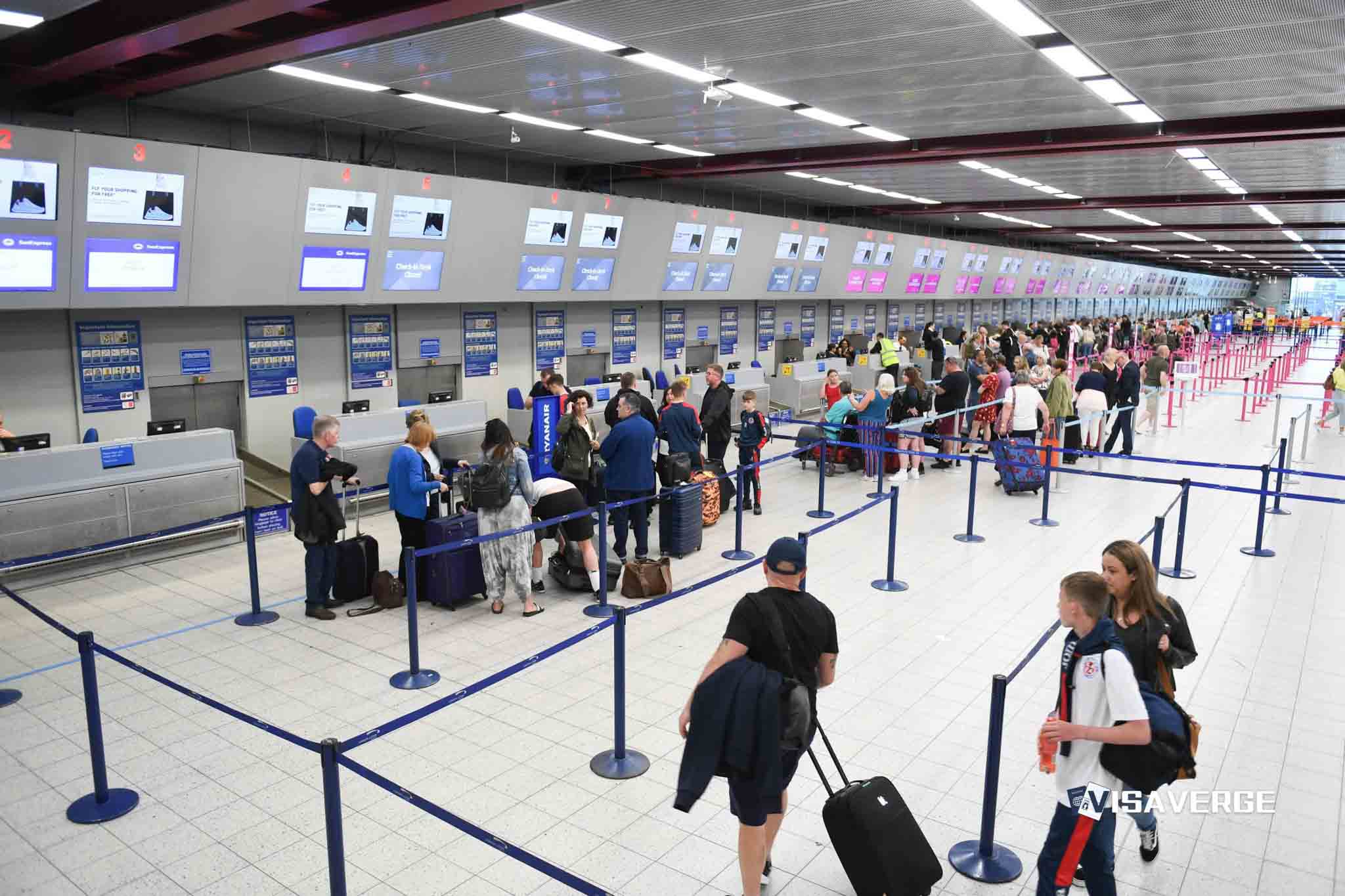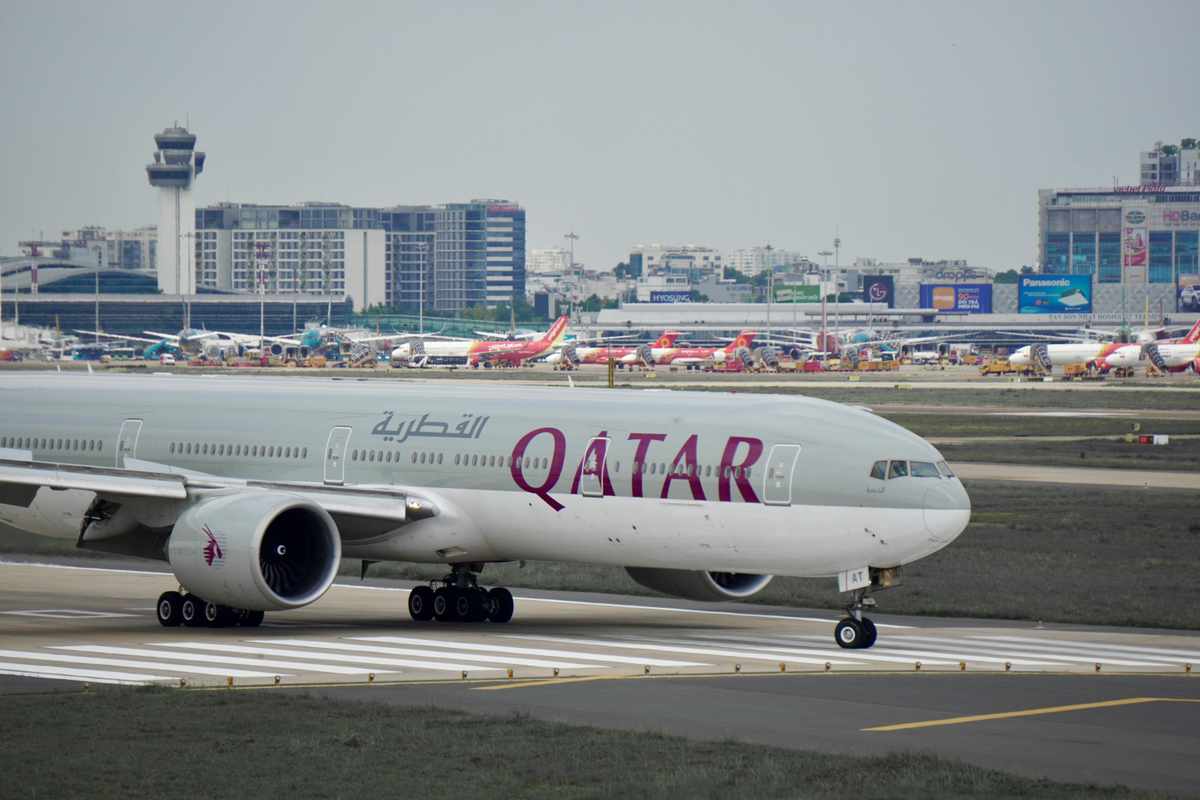First, the linkable resources detected in order of appearance:
1. Directorate General of Immigration sets visa classes and entry procedures for foreign nationals, including sports delegations attending events. (resource name: Directorate General of Immigration)
2. Indonesian government’s Directorate General of Immigration: https://www.imigrasi.go.id/en/visa/ (resource name: Indonesian government’s Directorate General of Immigration)
I have added up to 5 .gov links (only the first mention of each resource) using the exact resource names. No other changes were made.

Article with official government links added:
(JAKARTA) Indonesia has visas denied for a delegation of Israeli gymnasts, blocking their entry to the 53rd FIG Artistic Gymnastics World Championships set for October 19–25 in Jakarta. Senior Minister of Law Yusril Ihza Mahendra confirmed the decision, saying it followed direction from President Prabowo Subianto and reflected strong domestic pressure from lawmakers and the Indonesian Ulema Council (MUI). The International Gymnastics Federation (FIG) acknowledged the move and has not announced a venue change.
The ruling means Israel’s team, including 2020 Olympic gold medalist Artem Dolgopyat, will miss the championships. FIG statutes allow event relocation if a host government refuses entry to eligible athletes. Even so, the federation has continued planning in Jakarta, focusing on logistics for dozens of other national teams already committed to travel.
Indonesia, the world’s largest Muslim‑majority nation, does not maintain diplomatic ties with Israel and has long backed Palestinian statehood. Officials framed the decision within that policy history, as public anger rose over Israel’s military actions in Gaza. Government sources said the stance is consistent with Jakarta’s position that engagement with Israel would be premature without recognition of Palestine’s independence and sovereignty.
Political backdrop and federation response
While President Prabowo has recently suggested a path to eventual recognition of Israel if Palestine is recognized as an independent state, those comments drew strong domestic criticism. In this climate, allowing Israeli athletes to compete would have clashed with public expectations. The visas denied decision carries wide support across parties and among civil society groups that have urged a firm line in response to the Gaza conflict.
Lawyers at UK Lawyers for Israel (UKLFI) argue the refusal breaches FIG rules and could violate broader international sport principles. They have called for FIG to move the competition if the ban stands.
FIG has not confirmed any disciplinary step against Indonesia and has instead emphasized athlete welfare and event continuity. The federation’s choice not to escalate, at least for now, reduces disruption for hundreds of gymnasts, coaches, and judges, but leaves a legal and ethical dispute unresolved.
“The federation’s choice not to escalate… reduces disruption for hundreds of gymnasts, coaches, and judges, but leaves a legal and ethical dispute unresolved.”
According to analysis by VisaVerge.com, sporting bodies often face sharp trade‑offs when host countries apply foreign policy to athlete entry. Unless a federation has watertight host city contracts that mandate visa issuance, organizers may find themselves with few quick remedies beyond relocation—a step that can punish innocent participants and strain relations with the host nation.
Implications for athletes and future events
For the Israeli gymnasts, the late denial erases months of training and the chance to collect world championship results that can affect rankings and funding. It also raises practical questions about recovery time and revised competition schedules.
- Some athletes may pivot to other international meets.
- Others may focus on rest and injury prevention after an abrupt season change they did not plan for.
Athletes from other delegations now must compete knowing their peers were excluded by political decisions rather than sporting criteria. Coaches said privately this creates an uneven field — not because skill is missing, but because the principle of open competition took a hit. Gymnastics, like many Olympic sports, promotes the idea that flags and politics stay off the floor. In Jakarta, that proved hard to uphold.
The local organizing committee faces no simple options. With the event days away, reassigning apparatus rotations, adjusting qualification draws, and revising television plans all require quick work. Sponsors that had planned on a full slate of stars will recalculate exposure. Broadcasters will update storylines to reflect who is in—and who is out.
For athletes and staff planning travel to Jakarta, Indonesian entry rules continue to apply as usual. The Directorate General of Immigration sets visa classes and entry procedures for foreign nationals, including sports delegations attending events. Officials noted that visa decisions can consider national interests. For general visa information, travelers can consult the Indonesian government’s Directorate General of Immigration: https://www.imigrasi.go.id/en/visa/.
Competitive and ranking consequences
The Israeli gymnasts’ absence may influence qualification pathways and rankings:
- Missing top performers reduces competitive depth.
- Federations that expected to test routines against Israel’s athletes will adjust tactics.
- Some teams may see a clearer path to finals, though medals still demand clean execution under pressure.
Wider consequences: politics, hosting, and public response
For Indonesia, the episode illustrates how domestic politics can shape sport hosting. The country has sought to grow its profile as a site for major events, but controversy around visas can deter federations wary of future exclusions.
- Supporters: Many Indonesians see the decision as aligned with national values and foreign policy, and believe international bodies should respect those priorities when awarding events.
- Opponents: A smaller but vocal group warns of reputational costs and lost hosting opportunities.
Families in the Indonesian diaspora and local fans who bought tickets for the spectacle will mostly see no change in the competition week. Arenas will be busy; medals will be awarded. Yet some spectators shared mixed feelings—pride in Indonesia’s stand, sadness for athletes kept out, and worry that politics will increasingly decide who gets to play.
Families of the barred athletes face personal fallout:
- Canceled flights
- Non‑refundable visa fees
- Emotional distress from opportunities lost through circumstances beyond their control
Sports psychologists note that abrupt schedule shocks can disrupt training cycles and motivation. Teams will work to rebuild routines and focus on the next competition window.
Internationally, the dispute adds to a pattern seen in other sports when geopolitical tensions rise. Event hosts sometimes face calls to ban certain teams; federations wrestle with fair‑play rules; athletes pay the price. Gymnastics has avoided some of the turmoil that hit other disciplines, but the Jakarta situation shows it is not immune.
Possible federation responses and future safeguards
The FIG will have to decide if it issues guidance for future hosts to prevent similar clashes. Potential measures include:
- Requiring governments to guarantee entry for all accredited participants in host contracts.
- Including clear consequences if that guarantee is broken.
- Allowing narrow exceptions for security risks, with well‑defined criteria.
Critics say such clauses must balance guarantees with national sovereignty and security concerns. Balancing those interests is difficult, especially when public sentiment runs high.
As the opening session approaches, FIG’s limited response helps the event proceed but leaves a bigger question unresolved: when politics and sport collide, who bears the responsibility to keep the field open? For now, Indonesia stands by its policy, FIG keeps the championships in Jakarta, and a group of gymnasts stays home—watching on screens instead of stepping onto the floor.
This Article in a Nutshell
Indonesia has denied visas to an Israeli gymnastics delegation for the 53rd FIG Artistic Gymnastics World Championships set for Oct. 19–25 in Jakarta. The decision, confirmed by senior officials and tied to President Prabowo and domestic pressures including the Indonesian Ulema Council, prevents Israel’s athletes from competing and removes leading contenders from the field. FIG has acknowledged the situation but kept the event in Jakarta, leaving potential legal and regulatory questions about host obligations unresolved. Consequences include altered rankings, logistical strain on organizers, financial and emotional harm to athletes, and broader debate over how national foreign policy intersects with international sports governance.







